ASYCUDA helps countries reform customs regimes, facilitate trade
Since its inception, the UNCTAD Automated System for Customs Data (ASYCUDA) programme has assisted member States in reforming their customs regimes, procedures and systems in line with international standards and best practices.
Over the past 40 years, the programme has broadened its activities and assisted countries and government agencies in automating their trade facilitation procedures. It has participated in the implementation of customs-centric single window systems in countries such as Burundi, Comoros, Jamaica, Kazakhstan, Rwanda, Timor-Leste, Uganda and Vanuatu.
Notable collaborations
In 2020, UNCTAD and the International Trade Centre (ITC) jointly developed ASYATO, a tool that extracts trade data from the ASYCUDAWorld system for customs agencies, which provide it to ITC and the African Trade Observatory. The tool was successfully deployed in Comoros, Madagascar and Uganda.
The programme also deployed a cloud-based system that offers automated support in permit processing for trade of endangered species in Sri Lanka. Over 650 import and export permits were issued in 2020 through the system dubbed eCITES, jointly developed with the secretariat of the Convention on International Trade in Endangered Species of Wild Fauna and Flora (CITES).
In addition, UNCTAD and the International Air Transport Association (IATA) jointly developed and implemented IATA's Cargo-XML standard messages in the ASYCUDAWorld system for the electronic processing of air cargo information.
All data entered by airline members on the IATA system are automatically transmitted to ASYCUDAWorld. UNCTAD deployed the solution in Angola, Jamaica and Uganda in 2019 and in 2020 it enhanced and deployed it in Rwanda.
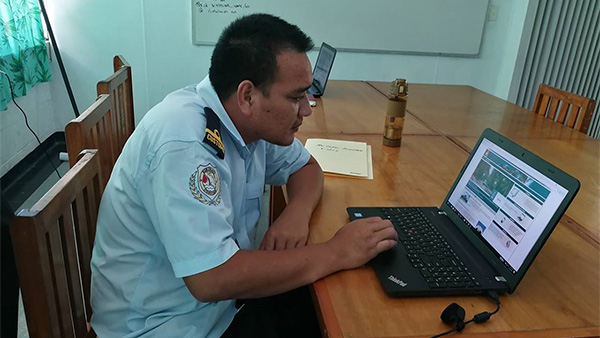
A customs officer at work in Kiribati, which ASYCUDA has helped build a national single window environment.
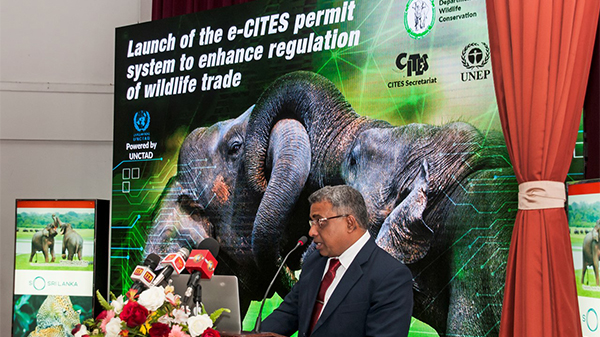
An official in Sri Lanka delivers remarks at the launch of a wildlife trade management system jointly developed by UNCTAD and CITES.
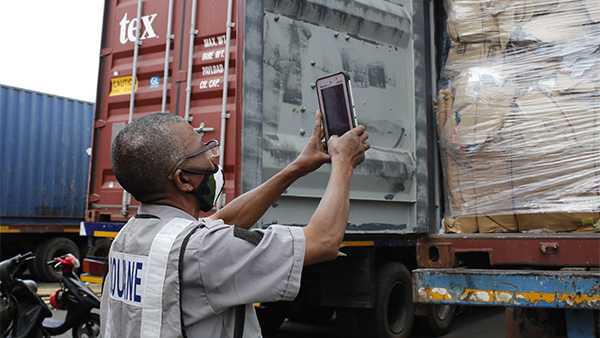
A customs officer in Madagascar takes a photo of cargo during the clearance process.
New, enhanced system powers economies
UNCTAD also developed a new version of ASYCUDAWorld, integrating the management and automation of clearance of express couriers, with multiple enhancements in selectivity, transit and reporting.
In 2020, Gabon, Georgia, Lesotho, Madagascar, Moldova and Turkmenistan deployed ASYCUDAWorld locally or nationally. Afghanistan, Albania, Aruba, Barbados, Bosnia and Herzegovina, the Democratic Republic of the Congo (DRC), Kosovo, Lao People’s Democratic Republic and Nepal enhanced their ASYCUDAWorld system with new features and modules.
The implementation of ASYCUDA systems bolsters economies and development. In Barbados, in the first quarter of 2020, 60% of commercial imports were cleared within 24 hours after payment of duties.
In Comoros, the National Research Institute on Agriculture, Fisheries and Environment increased its tax collection efficiency by 125%.
In Jamaica, the Single Windows predictable and consistent service delivery greatly reduced application processing times to an average of 28 hours and overall clearance times to about 32 hours, with considerable savings in associated costs.
In Lebanon, ASYCUDAWorld kept running even after a catastrophic blast, thanks to the blast-tolerant private customs cloud. Customs authorities did not lose any data or transaction. The system expedited the clearance of over 350 containers the day after the blast.
In Vanuatu, implementation of the ASYCUDA Sanitary and Phytosanitary Module (ASYSPS) automated the processes of applying, approving and paying for sanitary and phytosanitary certificates. It facilitated the issuance of over 2,000 import permits and collection of over $250,000. It also reduced application processing times from days to as little as 10 minutes.
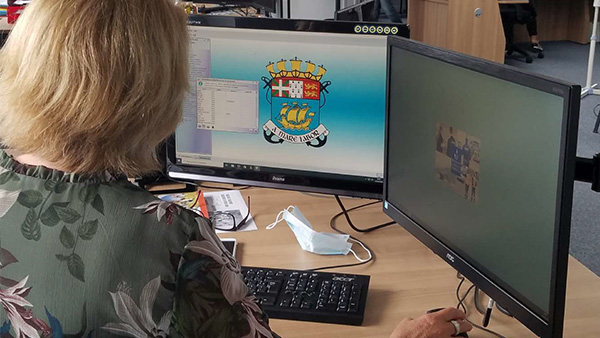
A customs officer in Saint Pierre and Miquelon uses the ASYCUDA system.
Tackling economic impact of COVID-19
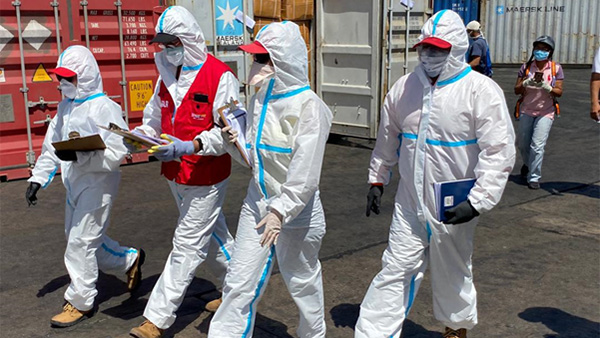
Customs officers in Venezuela at work during the COVID-19 pandemic.
The ASYCUDA Programme also tailored its assistance to help countries tackle the economic impact of COVID-19. It provided guidelines to help customs authorities adapt their use of ASYCUDAWorld to the COVID-19 situation, cope with its related measures at the workplace and reduce direct interaction. To facilitate the implementation of the guidelines, it gathered data from customs authorities through a survey in which 46 countries participated.
Countries also received tailored assistance. In Belize, the programme guided the national trade facilitation committee in mainstreaming its COVID-19 response.
In the DRC, it supported authorities to implement measures such as the exemption of taxes on imported medical supplies, suspension of delay penalties and tailoring of the risk management mechanism to expedite shipments and perform less inspections.
In Guyana, the programme extended the pre-payment functionality of ASYCUDAWorld to export declarations to avoid any unnecessary direct interaction. In Sri Lanka, trade operators can now submit, through ASYCUDAWorld, scanned copies of supporting documents such as invoices.
ASYCUDA also conducted online training sessions and on-site ones in countries benefitting from the on-site presence of UNCTAD experts and trainers, such as Comoros and Gabon, in strict compliance with sanitary measures due to the COVID-19 pandemic. The programme also began developing an e-learning platform that offers documentation, video tutorials and exercises to its users.


